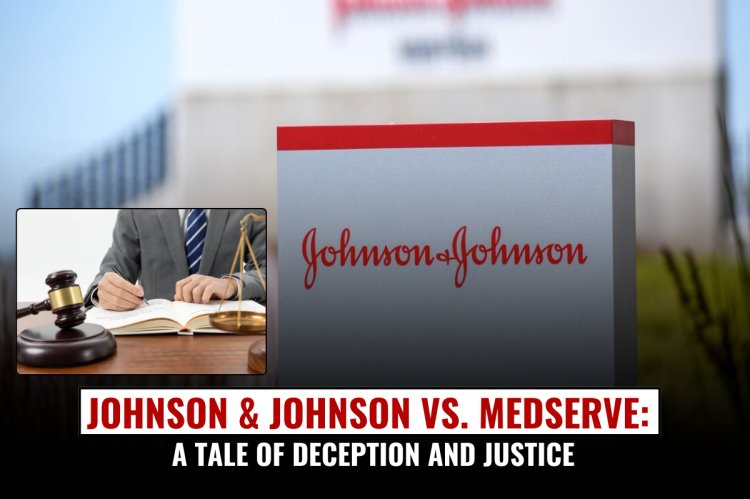Johnson & Johnson vs. Medserve: A Tale of Deception and Justice
The Johnson & Johnson vs. Medserve case highlights the dangers of counterfeit medical products and the importance of trademark enforcement. A routine brain surgery led to the discovery of fake SURGICEL products, sparking an investigation that traced the counterfeits from the U.S. to Dubai and finally to Medserve in New Delhi. Johnson & Johnson took legal action, resulting in a landmark judgment by the Delhi High Court. The case underscores the need for stringent supply chain monitoring and vigilance in the healthcare sector to protect patient safety and brand integrity.

A Discovery in the Operating Room
It was supposed to be a routine brain surgery at the University of Kentucky Medical Center. But as the neurosurgeon reached for a trusted surgical device—SURGICEL, a product by Johnson & Johnson—something felt off. The texture, the packaging, even the way it absorbed blood—it wasn’t quite right.
Alarmed, the doctor reported his suspicions to Johnson & Johnson. The company, which had built its reputation on quality and trust, immediately launched an investigation. What they uncovered would unravel a global counterfeit operation—one that threatened not only their brand but the lives of countless patients.
Following the Trail of Counterfeits
Johnson & Johnson’s team traced the counterfeit SURGICEL back to a distributor in the U.S., then to a supplier in Dubai, and finally, to its origin—a small medical supply business in New Delhi, Medserve, run by Pritamdas Arora. The revelation was shocking:
- Fake surgical products were being manufactured and sold under the SURGICEL and ETHICON brand names.
- The counterfeits were non-sterile, contaminated, and dangerously defective.
- Patients undergoing surgeries were at serious risk due to these fake medical devices.
With evidence in hand, Johnson & Johnson decided to take legal action.
The Battle in Court
The company filed a lawsuit in the Delhi High Court, accusing Medserve and Pritamdas Arora of trademark infringement, counterfeiting, and endangering public health. But instead of defending himself, Arora vanished, ignoring court summons and evading law enforcement. The court had no choice but to proceed ex-parte—in his absence.
Investigators, appointed by the court, raided Medserve’s premises. What they found painted a picture of brazen criminality:
- Stacks of counterfeit SURGICEL and ETHICON products.
- Forged documents designed to deceive hospitals and medical suppliers.
- Illegal financial transactions, including foreign bank accounts used to launder profits.
- Hawala transactions, revealing a deep network of illicit trade.
To know more about this you can follow the li nk below:
The Verdict: A Warning to Counterfeiters
After months of hearings and overwhelming evidence, the Delhi High Court delivered its verdict. Justice Amit Bansal ruled in favor of Johnson & Johnson, sending a strong message to counterfeiters worldwide.
- Permanent injunction: Medserve was banned from using J&J’s trademarks.
- Destruction of counterfeit stock: Every fake surgical product seized was ordered to be destroyed.
- ₹2.34 Crore in compensatory damages: To cover J&J’s financial losses.
- ₹1 Crore in punitive damages: To set an example and deter future counterfeiters.
- Recovery of legal costs: Medserve was ordered to pay for Johnson & Johnson’s litigation expenses.
Lessons Learned: Protecting Lives and Brands
For businesses, this case is a stark reminder of why trademark protection and supply chain monitoring are essential. Companies must track their products, secure their trademarks, and act swiftly against counterfeiters.
For consumers and medical professionals, it’s a lesson in vigilance. Always verify medical products, report irregularities, and demand authenticity—because in healthcare, fakes can cost lives.
A Final Thought
As the counterfeit SURGICEL was removed from hospitals and the case closed, one truth remained: Justice was served, but the fight against counterfeit medical products continues. And for those willing to risk lives for profit, the law is watching.












